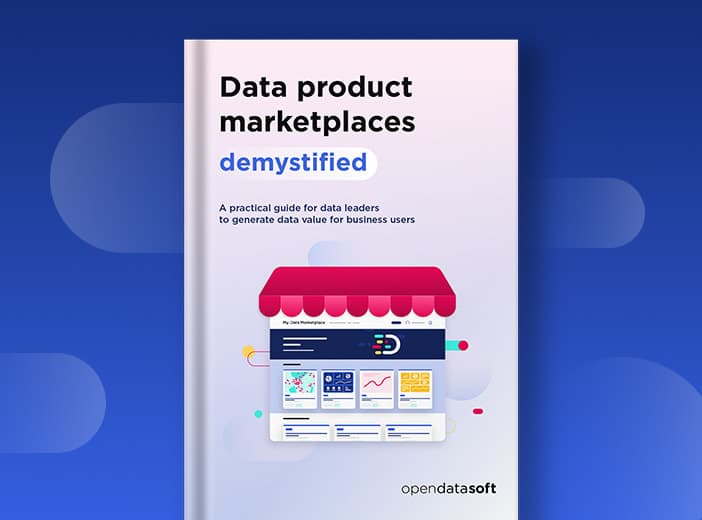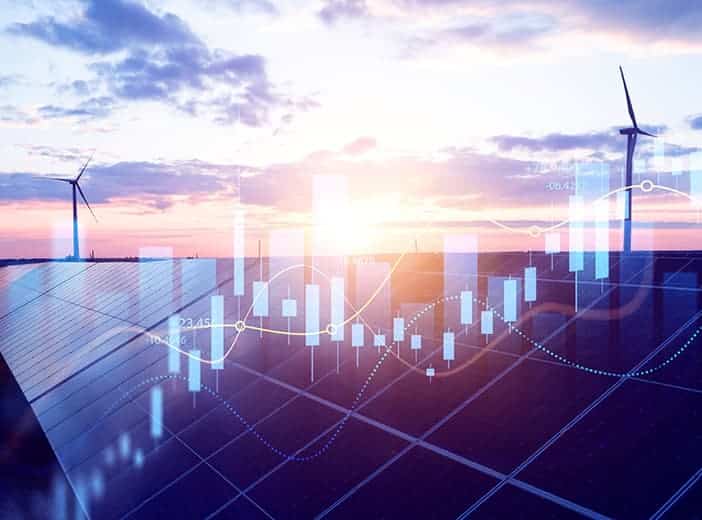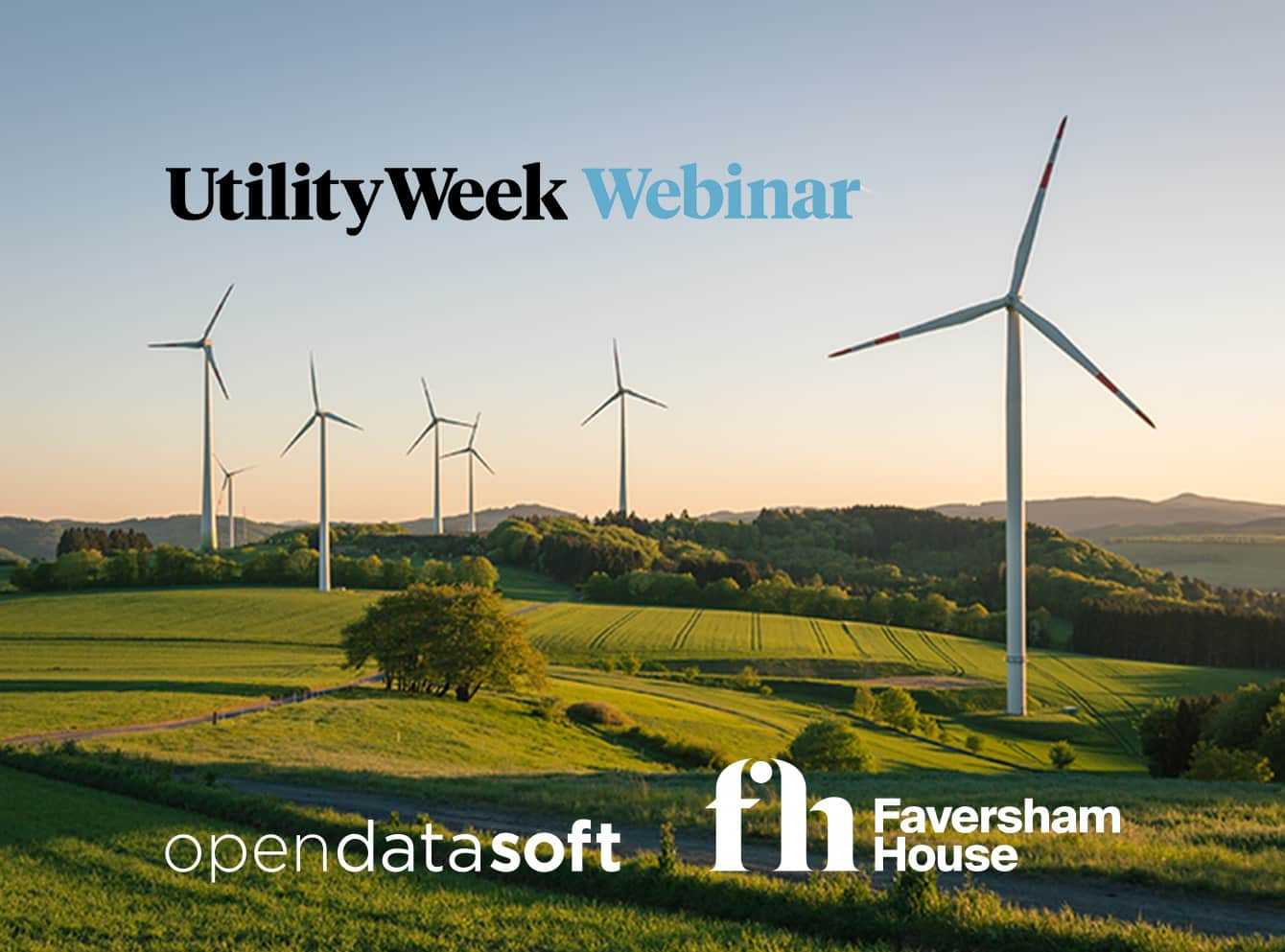How energy data marketplaces drive ROI and financial benefits
Data sharing through data marketplaces is essential to deliver the collaboration and management required to build decarbonized energy ecosystems. But the benefits extend much further - we explore the financial ROI effective data sharing delivers.

Utilities and other energy companies are increasingly looking to share their data more effectively both internally and externally. This helps deliver the greater collaboration required to decarbonize energy production and supply as part of meeting net zero goals and supporting a more decentralized grid with a larger number of participants, from new renewable generators to EV charging companies and municipalities. As part of this, many countries mandate that energy companies share their data as part of their license conditions, setting strict criteria about what information should be publicly available, and monitoring.
However, data sharing through energy data marketplaces delivers much more than greater external collaboration. It actually provides tangible Return on Investment (ROI) in data through increased efficiency, deeper digitalization, the enablement of new services such as AI, and, in some countries, regulatory rebates. Here are six ways that energy data sharing delivers financial benefits.
Increased efficiency
Every utility needs to respond to requests for information from external stakeholders. These could be power generators looking to site new assets, developers planning housing or EV charging station providers deploying new infrastructure. They all need to understand where there is capacity within the network in order to effectively connect and supply or access electricity.
Managing this growing volume of queries takes up a large amount of resources for utilities, particularly as stakeholders might need to make multiple requests if specific locations are unavailable. This also adds to the time for stakeholders.
Replacing this approach with a self-service data marketplace enables stakeholders to easily carry out their own research, shortlisting locations for infrastructure or connections before they even make contact. That makes the whole process much simpler and more efficient for the utility, freeing up resources to focus on more complex requests. For example, since it launched its data marketplace Portuguese network operator E-REDES has seen the number of requests for medium-voltage grid information drop from 300 per month to a minimal level, freeing up two full-time staff to work on other projects.

Greater digitalization
Energy companies operate large and complex physical infrastructures, comprising a huge number of separate, interconnected assets. These all produce growing volumes of data, often on a real-time basis. For example, Belgian transmission system operator (TSO) Elia Group operates 19,276 km of high-voltage connections that supply power to over 30 million end-users, producing 50 million data points every day.
Digitalizing operations is crucial to increasing efficiency and delivering complete control over the utility network, enabling more effective monitoring. However, given the sheer range of different data sources across the business, managing digital infrastructure can be complex, expensive and time-consuming. Data can be trapped in silos, making it hard to share and pushing up IT costs.
As part of its shift to becoming data centric, Elia has introduced a broad data platform, which covers processing, repositories, analytics, data management, data services and integration with internal and external services.
Within this Elia has created a public energy data marketplace to share data while meeting its data governance and lineage requirements. To increase efficiency it is automating the publication of data flows, with new events captured, transformed and automatically published on the data marketplace, following data governance rules. This removes any obstacles to data publication, saving the IT team time and enabling business people to share data more easily.
To reinforce governance and build trust in data Elia has created a single data glossary to provide a unified list of definitions that are used across the organization, including within the data marketplace. The glossary, which now has over 5,000 entries, provides information on what every term within data management means, naming conventions, what data is available, and who is responsible for individual datasets. This is supported by data lineage processes that track data from its creation all the way through the architecture, mapping any dependencies to track the potential impact of any changes. Together, this delivers coherence across all datasets and amongst all data users within Elia, supporting digitalization and optimizing infrastructure.
Decision-making and future planning
Effective internal decision-making and future planning reduces risk and cost while allowing energy companies to successfully pursue new opportunities. By bringing relevant data together, data marketplaces create a single, central source of truth that can then be used by employees and other stakeholders to support better informed decisions. For example, Australian utility Endeavour Energy collects and shares power supply data for all of its 162 substations via its data marketplace. This provides a 15 minute average, showing times of greatest demand throughout the day, and enabling more consistent and comprehensive planning. In Belgium, Elia has created a data visualization that clearly shows the current physical flows of electricity across the Belgian high-voltage grid. Through clear color-coding it shows exactly which lines are operating at close to capacity, helping explain to the public why certain parts of the grid require upgrading. All of this helps reduce future risk and the potential cost of decisions based on incomplete information.

Similarly, the US Department of Energy in conjunction with Oak Ridge National Laboratory
(ORNL), has created a centralized public energy data marketplace. This acts as a connection hub of over 70 datasets from over 50 sources such as federal, state, academia and private sector entities. The objective is to make information easily available across the ecosystem to help with planning and to encourage innovation and collaboration.
Prepare for AI
Every organization is looking at how AI can help transform their operations. For example, in the energy sector it has the potential to improve resilience by better predicting near-term demand, optimizing the balance with supply and avoiding potential disruption, as well as automating operations to increase efficiency.
Whatever the use case, AI requires access to large amounts of high-quality data in the right formats to both train models and support AI agents. This data has to be trustworthy, reliable, machine-readable and compliant with regulations. Data marketplaces support AI rollouts by providing a single source of high-quality data, particularly in the format of data products that can equally be consumed by humans and AI. All of this reduces the resources required for AI deployments, further increasing the ROI on data marketplace investments.
Industry rewards and rebates
Many jurisdictions have put in place regulatory requirements for energy companies to share their data to enable greater transparency, collaboration and decarbonization. Some incorporate mechanisms to reward utilities for successfully sharing their data in consumable ways, while others have penalty schemes in place with fines for those that don’t comply with regulations.
In the UK regulator Ofgem incentivizes good data sharing as part of the push for network operators to transform to become Distribution System Operators (DSOs), under the RIIO-ED2 price control. This includes sharing planning, operational and market data across the ecosystem. As part of this Ofgem assesses progress on an annual basis, evaluating data and information provision through both technical appraisals and stakeholder surveys.
In its most recent report, Ofgem states, “Under the RIIO-ED2 price control, the financial incentive available to each Distribution Network Operator (DNO) is up to +0.4% of their Regulatory Equity Return (RoRE) for high performance, and down to -0.2% for poor performance, based on annual evaluation across qualitative and quantitative metrics.”
Launch of new services
As they digitalize and collaborate more widely with growing ecosystems, utilities can harness data from their marketplaces to create new, monetizable services designed around user needs. Many are now working closely with municipalities and councils to help them plan their net zero strategies by providing comparative information on their energy efficiency progress compared to other towns and cities. Others make available data on planned and unplanned outages through APIs from their data marketplaces. This provides a real-time feed that can be incorporated into third-party applications to better inform customers, allowing them to plan more effectively.
Other new services help with planning. For example, UK Power Networks has created noise contour maps for all of its substations. These model the sound waves produced when substations convert electricity into usable voltages, creating a background hum. This information can then be used during the planning process to minimize the impact of substation noise on new developments, avoiding the need for more costly actions later in projects.

Maximizing the financial benefits of energy data sharing
Effectively sharing data is central to building decarbonized energy ecosystems and managing supply and demand in a rapidly changing, decentralized world. Data marketplaces are at the heart of this, providing easily consumable, high quality data assets that can be accessed and used by both humans and AI. However, data marketplaces also deliver quantifiable financial benefits for utilities, helping digitalize operations to increase efficiency and save time while enabling new services and better overall performance.
Want to find out more about energy data sharing? Watch our recent webinar with Utility Week, UK Power Networks, Northern Powergrid and regulator Ofgem to get the latest on progress across the sector.




